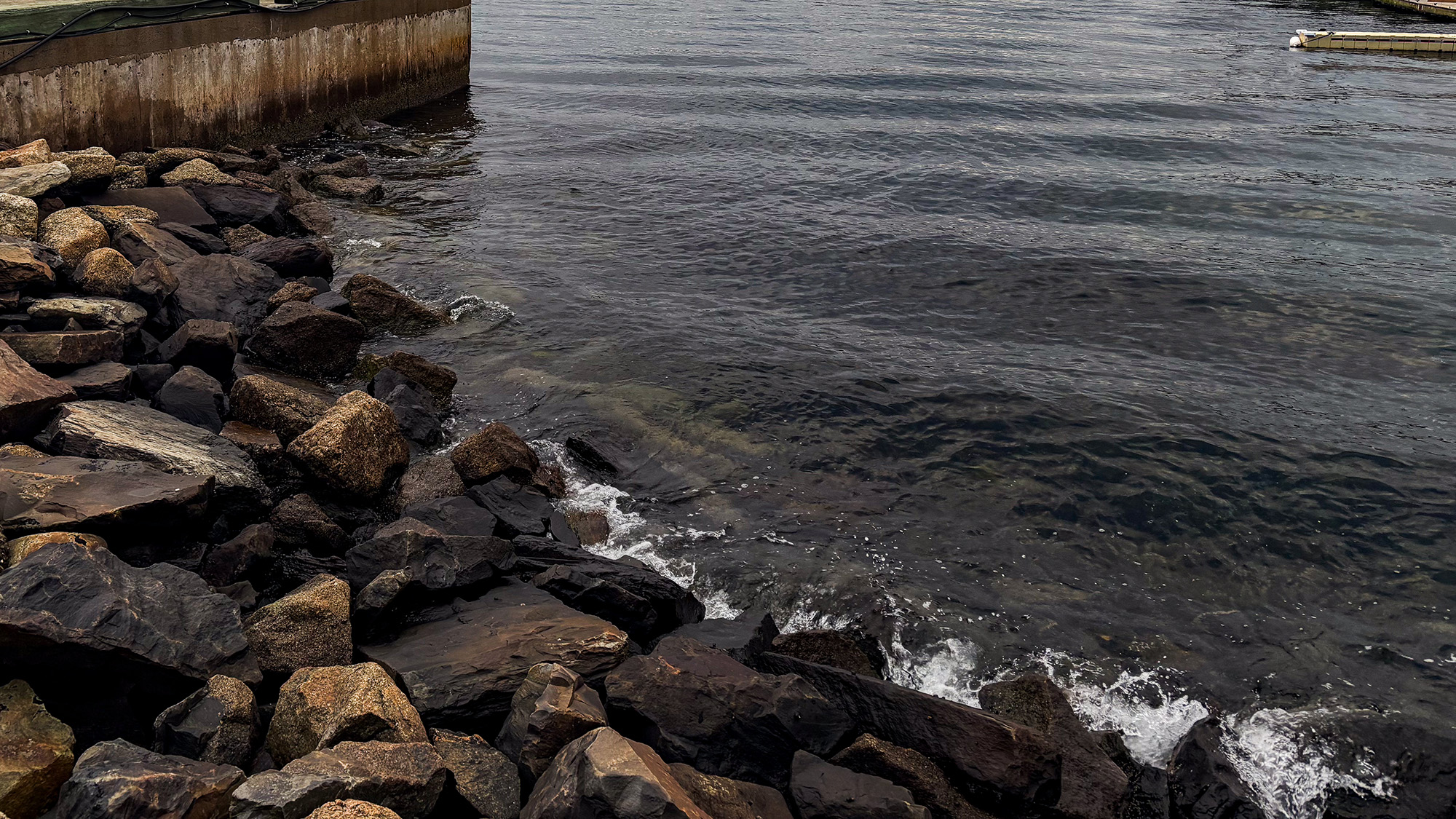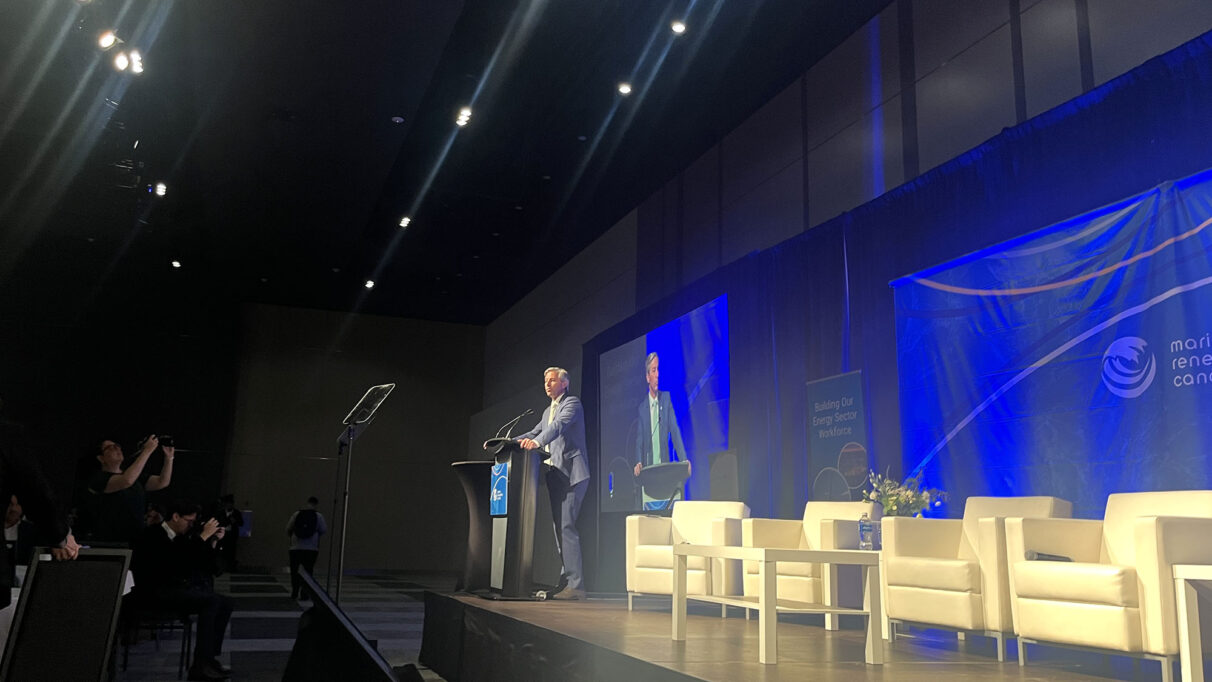Tides are changing for the tidal energy industry
Ontario firm gets federal approval for Fundy power project

caption
The tide comes in along the Halifax harbour in November 2025. Proposed tidal projects in the province's Bay of Fundy harness the flow of tides to generate electricity.Ontario-based Eauclaire Tidal Ltd. has received federal approval to proceed with developing tidal energy in the Bay of Fundy.
The authorization was announced at the Marine Renewables Canada conference in Halifax on Nov. 13.
Prior to the conference, Nova Scotia Premier Tim Houston announced that Eauclaire was successful in a provincial tender bid to expand their current capacity in the Bay of Fundy.
About 160 billion tons of water flow through the Bay at each tide, about four times the estimated flow of all the world’s freshwater rivers. Tidal energy is power harnessed from the ebb and flow of that tide through turbines.
Because of its regular ebb and flow, tidal energy is considered more consistent than other renewables like wind or solar.
“You can plan an electricity system around it,” Lindsay Bennett, executive director of the Fundy Ocean Research Network for Energy (FORCE), said while addressing the conference. She said tidal currents “are steady and predictable, delivering energy four times a day, not tied to wind and sunlight.”
FORCE has been working to develop tidal energy in the Bay of Fundy with support from the provincial government since 2009.
At the conference, Houston reiterated the province’s support for tidal power.
“Each new turbine in the Bay of Fundy moves the province closer to a future where tidal energy is not just a concept, but a cornerstone of our clean electricity strategy.”

caption
Nova Scotia Premier Tim Houston speaks during the recent Marine Renewables Canada conference in Halifax.
The regulatory process between the provincial and federal governments has caused delays for past tidal projects.
In 2023, Dartmouth-based Sustainable Marine Energy (SME) pulled out of a project in the Bay of Fundy, citing regulatory approval delays. The Department of Fisheries and Oceans launched a task force on sustainable tidal energy development in response.
The approval of Eauclaire’s proposal is the first since the task force. The permit means they are now working to secure financial investment for the project.
“There’s a fantastic ecosystem of people who are working to make this happen,” says Oliver Wragg, development director of Scotland-based Orbital Marine Power, Eauclaire’s business partner.
He says they have noted “fantastic support” from test facilities, academic researchers, and trade partners.
About the author

Isabel Duque
Isabel Duque is a reporter for The Signal and a student in the Masters of Journalism program at the University of King’s College.
